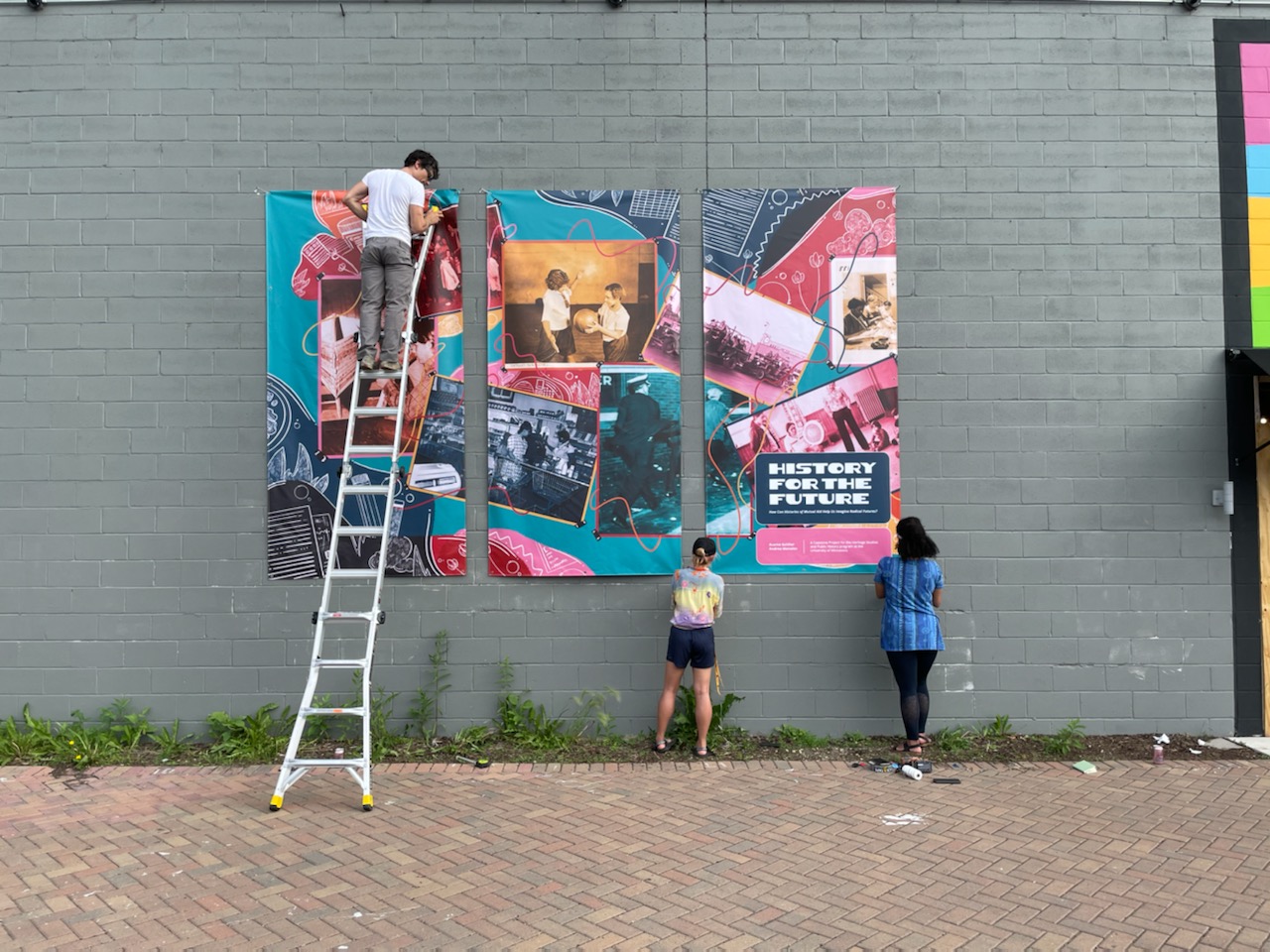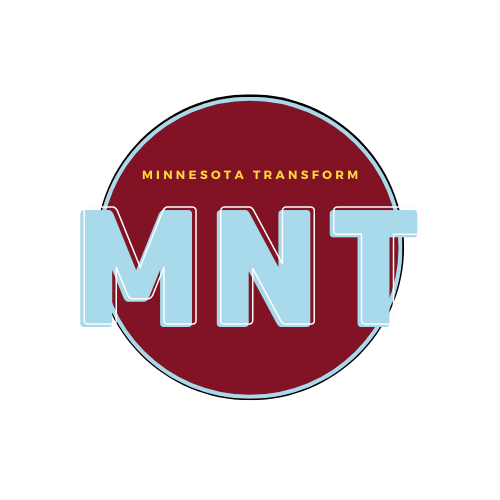Minnesota Transform
A Just University for Just Futures
Minnesota Transform
A Just University for Just Futures


History for the Future exhibit installed in an open community lot in South Minneapolis. Image credit: History for the Future, 2021.
Minnesota Transform ended as an entity in June, 2024. This website documents much that happened in the three and a half years we worked to support decolonial and racial justice humanities initiatives at the University of Minnesota and across our community. From the accomplishments of our community partners to the internal work we did to make the University more porous and responsive, we hope that this site will serve as a useful resource, as well as an example of what is possible for University and community collaboration.
From January, 2021 to June, 2024, we supported 253 internships, worked with over 90 partners on and off campus, and distributed over $500,000 directly to community organizations…Please visit our acknowledgements page to learn about the many organizations and individuals who made this work possible.
We also recommend you explore the following Just Futures initiatives to learn about other similar projects occurring across the country:
- Brown University (Providence, Rhode Island): “Reimaging New England Histories: Historical Injustice, Sovereignty and Freedom”
- Columbia University (New York, New York): “Racial Justice and Abolition Democracy: An Action Curriculum for a Just Society”
- Cornell University (Ithaca, New York): “Cross-Border Movements: Racism, Dispossession, and Migration”
- Florida International University (Miami, Florida): “Race, Risk, and Resilience: Building a Local-to-Global ‘Commons for Justice’”
- Howard University (Washington, District of Columbia): “Social Justice Consortium”
- Johns Hopkins University (Baltimore, Maryland): “Inheritance Baltimore: Humanities and Arts Education for Black Liberation”
- Michigan State University (East Lansing, Michigan): “Creativity in the Time of COVID-19: Art as a Tool for Combating Inequity and Injustice”
- The University of Texas at San Antonio (San Antonio, Texas): “Democratizing Racial Justice: Remembering Histories, Transforming Futures”
- University of California at Berkeley (Berkeley, California): “The Black Studies Collaboratory”
- University of California at Riverside (Riverside, California): “Latinx Futures: The Civil, Cultural and Political Stakes for Southern California Latinx Communities”
- University of Michigan (Ann Arbor, Michigan): “Research for Indigenous Social Action and Equity Center: Undoing Inequality”
- University of Michigan (Ann Arbor, Michigan): “Crafting Democratic Futures: Situating Colleges and Universities in Community-based Reparations Solutions”
- University of Oregon (Eugene, Oregon): “Pacific Northwest Just Futures Institute for Racial and Climate Justice”
- University of Pennsylvania (Philadelphia, Pennsylvania): “Dispossessions in the Americas: The Extraction of Bodies, Land, and Heritage from La Conquista to the Present”
- University of Wisconsin at Madison (Madison, Wisconsin): “Humanities Education for Anti-racism Literacy in the Sciences and Medicine”
In addition to our website, the work of MN Transform and our partners is archived on Elevator, the University of Minnesota’s digital content repository. This commitment will ensure public access to the materials and efforts we have gathered in our pursuit of enhancing the university's commitment to racial justice. We recommend that you bookmark our Elevator page to ensure future access to our partner’s great work.
We invite you to connect with our partners, and with any of the staff and leadership team of MNT. And we hope this gives you resources and encouragement for your work to make universities sites of racial and decolonial justice – porous, accessible, and open to us all.
Thank you for your attention, support, and continued great work!
-Minnesota Transform
We are building towards transformative justice through public humanities.
Minnesota Transform is a major higher education initiative engaging anti-colonial and racial justice work through the public humanities at the University of Minnesota, in the Twin Cities, and across the state of Minnesota.
Supported by a Just Futures Mellon grant, MN Transform puts “humanities on the front lines” through numerous public and university partnerships and hundreds of student internships on racial justice. On campus, MN Transform lays the groundwork for structural changes that expand the university’s racial justice work.
Minnesota Transform is part of, and helps to support, universities’ reckoning with racism, dispossession and exclusion, in ways that reimagine the university and elaborate its possibilities.
We work in partnership with and for local organizations.
Our partnerships include tribal and higher education institutions, such as the Minnesota Indian Affairs Council, Sisseton Wahpeton College, Minneapolis College, and the Humanities Action Lab. We are also in partnership with over 16 Twin Cities arts and community organizations.
Through these partnerships, we support Dakota and Ojibwe language revitalization programs, public history and art exhibitions, pedagogical workshops, multimedia storytelling, decolonial digital maps, and internships and experiences for students interested in working in racial justice.
At Minnesota Transform, we focus on the particular possibilities and histories that entangle the University of Minnesota in its communities. Importantly, we use the tools of the humanities — historical, narrative, and artistic work — to craft ethical engagements with these communities. We explore what it would be like if the humanities had a presence in racial justice struggles to the same extent that other parts of the university have a presence in the state’s business and political life.
In so doing we change both the knowledge that universities offer, and also challenge how the university operates. Our collaborations are designed and suggested by our partners, working with, but not under the direction of, university students, scholars, and historians. We do this not simply to make up for the university’s complicity — that is, not simply to right wrongs from the past — but also because we think it’s how knowledge should be created. We demonstrate that engaging with publics is what universities should, and in fact are able to, do.
Featured Projects
Explore the projects we've been working on.
Research Project: Experiences of Multiply-Marginalized, Disabled, UMN Graduate Students

TRUTH Project

Whose Campus History?

Pillsbury House & Theatre Oral History Project

Library Guides


